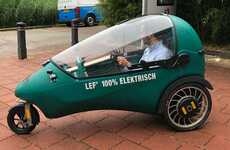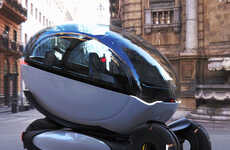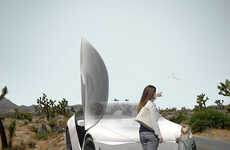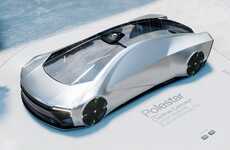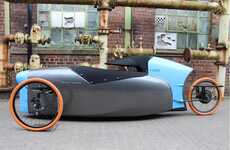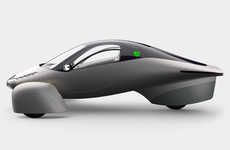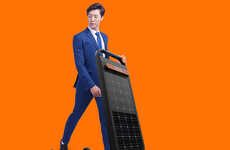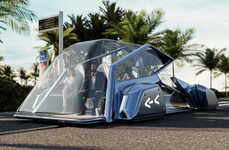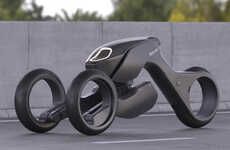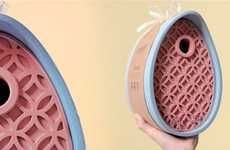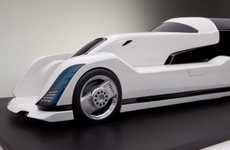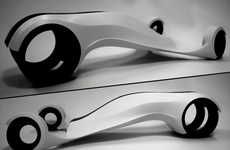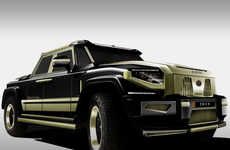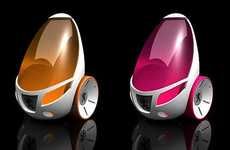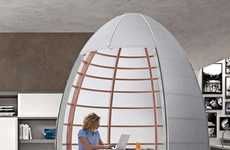
The 'Opel Ewol' is Designed to Run on Solar & Kinetic Energy
References: yankodesign & tuvie
Augustin Barbot envisions a scenario where gas, oil, coal and other sources of energy will no longer be available due to industrialization by 2050. In hopes to cope with the situation, Augustin has designed the 'Opel Owel,' a futuristic vehicle that will use natural sources like solar power, wind and kinetic energy to power itself.
The 'Opel Owel' is a three-wheeler and constructed from lightweight materials to make the car energy-efficient, aerodynamic and environmentally-friendly.
The 'Opel Owel' is a three-wheeler and constructed from lightweight materials to make the car energy-efficient, aerodynamic and environmentally-friendly.
Trend Themes
1. Self-sustaining Transportation - Barbot's design offers disruptive innovation opportunities for companies in the transportation industry to explore alternative sources of energy and reduce reliance on fossil fuels.
2. Renewable Energy Vehicles - This trend presents opportunities for startups to develop innovative green vehicles utilizing natural sources of energy.
3. Lightweight Materials - The use of lightweight materials in vehicle design presents opportunities for manufacturers to create more energy-efficient and environmentally-friendly cars.
Industry Implications
1. Transportation - The transportation industry can benefit from the development of self-sustaining vehicles with low environmental impact.
2. Renewable Energy - Renewable energy companies can explore the potential for utilizing natural sources of energy to power vehicles.
3. Manufacturing - Manufacturers can benefit from the use of lightweight and energy-efficient materials in vehicle design to reduce costs and environmental impact.
1.9
Score
Popularity
Activity
Freshness

